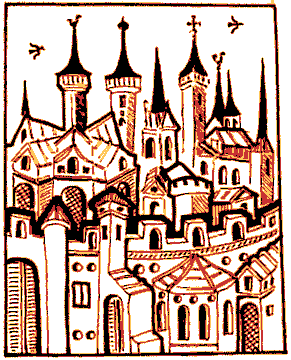
Europe: The First Sixteen Centuries |

The exploration and commercial exploitation of the Far East and the New World were inaugurated and led by Spain and Portugal, changing European investment methods and institutions, transport and technology, as well as market structures and trade.
From about 1500 AD European power spread around the globe at the expense of local cultures, exemplified by the destruction of the Inca civilisation in Peru and the conquest of the Aztecs in Mexico. From the viewpoint of today, this was one of the darkest episodes in the history of Europe, leading to religious persecution, slavery and rampant disease brought back to the West.
From the viewpoints of geographical knowledge and of commercial activity however, this period marks a watershed. Before 1500, maritime activity, although well developed in many places, existed in isolation. The combined effect of the Portuguese and Spanish discoveries was to show that all the oceans of the world were connected, and to lay the basis for the beginning of a global economy.
© 1998 Oxfordshire Museum Service, Setúbal Museums and the Benaki Museum